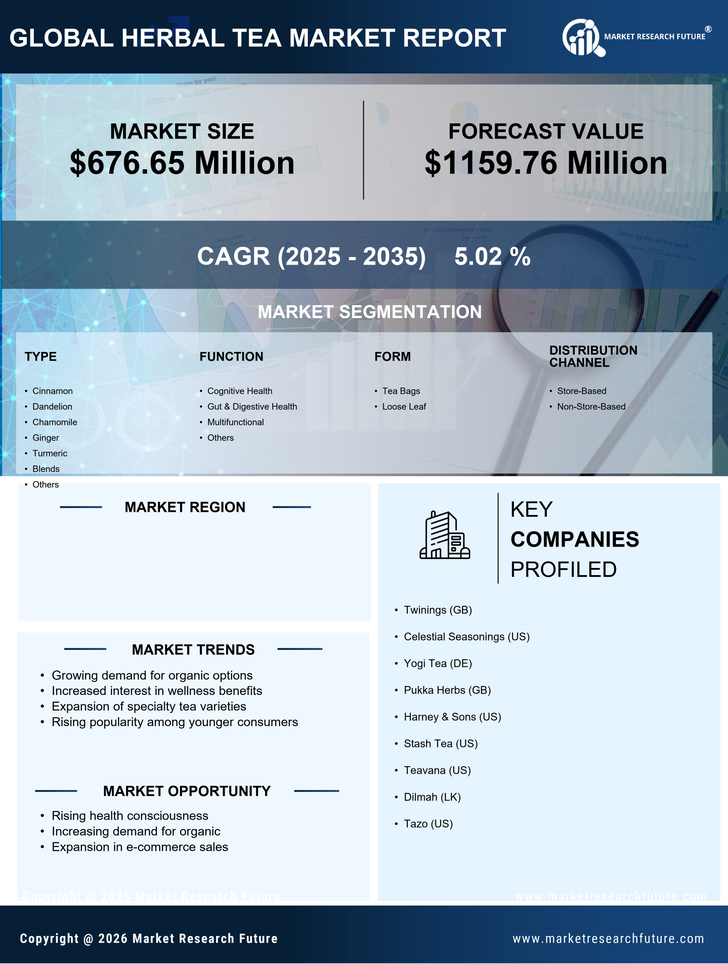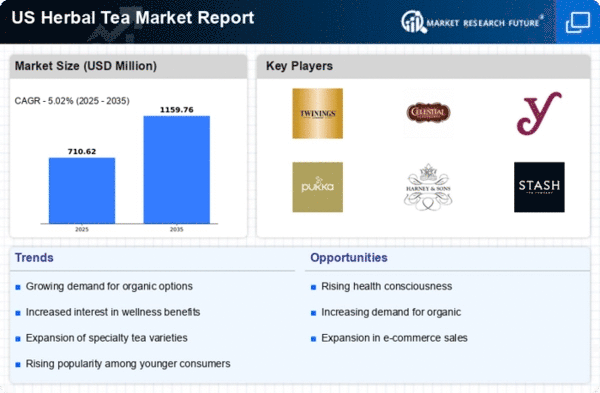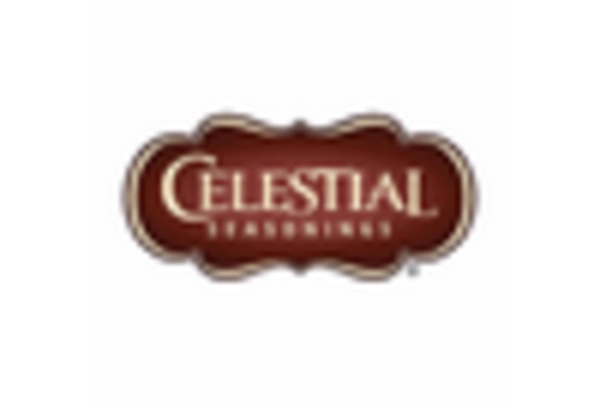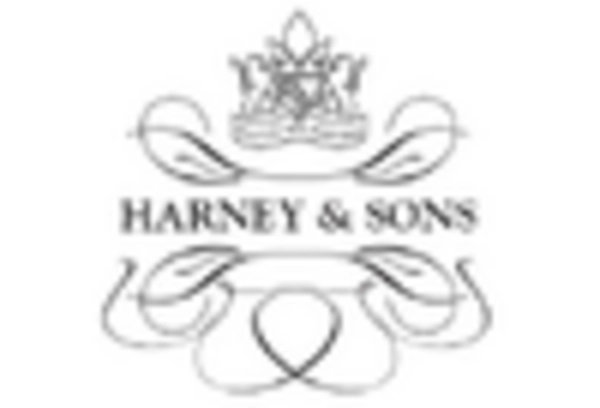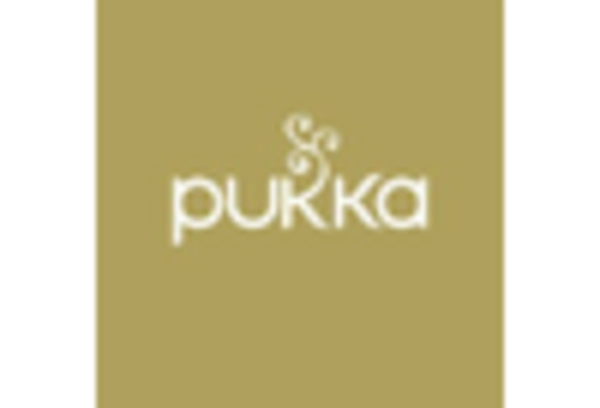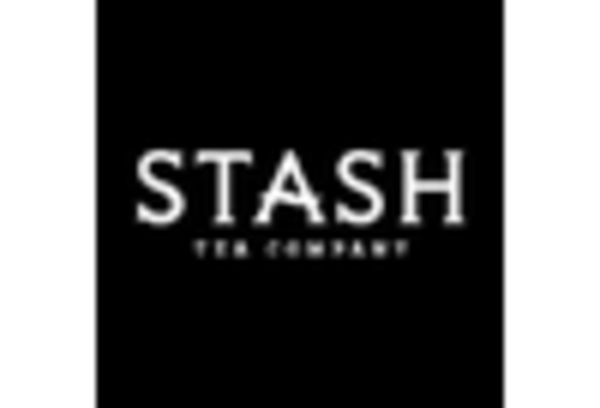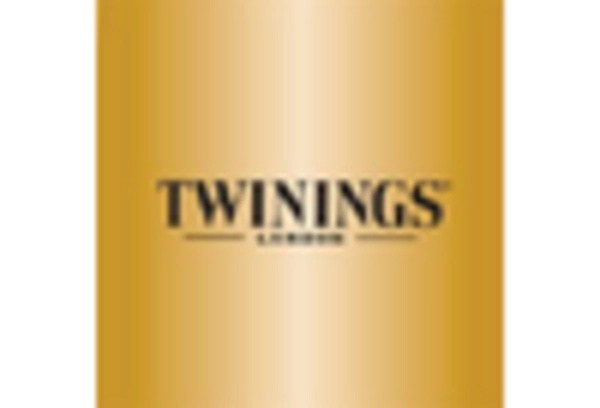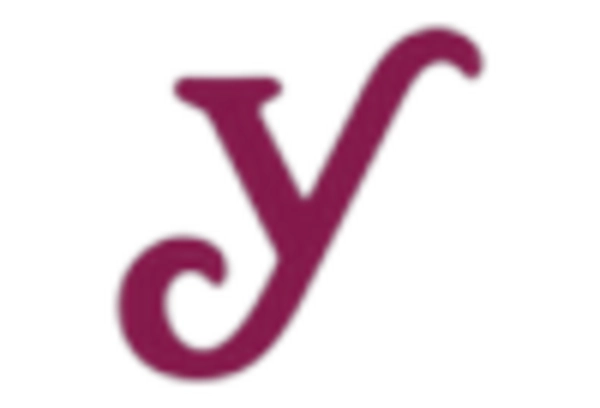E-commerce Expansion
The rapid growth of e-commerce platforms is transforming the distribution landscape for the herbal tea market. With more consumers opting for online shopping, brands are increasingly leveraging digital channels to reach their target audiences. Data indicates that online sales of herbal tea have surged by approximately 25% in the past year, driven by convenience and a wider selection of products. The herbal tea market is capitalizing on this trend by enhancing their online presence and offering subscription services to retain customers. This shift not only broadens market access but also allows for personalized marketing strategies, which can significantly boost sales.
Rising Health Consciousness
The increasing awareness of health and wellness among consumers is a pivotal driver for the herbal tea market. As individuals seek natural alternatives to traditional beverages, herbal teas are gaining traction due to their perceived health benefits. According to recent data, the herbal tea market is projected to grow at a CAGR of approximately 7.5% from 2025 to 2030. This growth is largely attributed to the rising demand for products that promote relaxation, digestion, and overall well-being. Consumers are increasingly turning to herbal teas as a means to enhance their health, which is likely to bolster the market further. The herbal tea market is thus positioned to benefit from this trend, as more people incorporate these beverages into their daily routines.
Innovative Product Development
Innovation in product offerings is a significant driver for the herbal tea market. Companies are continuously exploring new blends, flavors, and health-focused formulations to attract a diverse consumer base. The introduction of functional herbal teas, which target specific health concerns such as stress relief or immune support, is particularly noteworthy. This trend is supported by market data indicating that innovative products can lead to a 15% increase in sales within the first year of launch. The herbal tea market is witnessing a surge in creativity, with brands experimenting with unique ingredients and packaging to differentiate themselves. This focus on innovation not only enhances consumer interest but also expands the market's reach.
Cultural Influence and Globalization
Cultural influences and globalization are playing a vital role in shaping the herbal tea market. As diverse cultures share their traditions and practices, herbal teas from various regions are gaining popularity in the US. This cultural exchange is leading to an increased appreciation for unique herbal blends and traditional brewing methods. Market analysis suggests that the infusion of international flavors could contribute to a 20% increase in consumer interest over the next few years. The herbal tea market is thus benefiting from this cultural integration, as consumers seek authentic experiences and flavors from around the world.
Growing Demand for Natural Ingredients
The shift towards natural and organic ingredients is a crucial driver for the herbal tea market. Consumers are increasingly scrutinizing product labels and favoring beverages that are free from artificial additives and preservatives. This trend aligns with the broader movement towards clean eating and sustainable consumption. Recent statistics suggest that the organic herbal tea segment is expected to grow by over 10% annually, reflecting a strong preference for natural products. The herbal tea market is thus adapting to these consumer preferences by sourcing high-quality, organic ingredients. This commitment to natural offerings is likely to enhance brand loyalty and attract health-conscious consumers.
